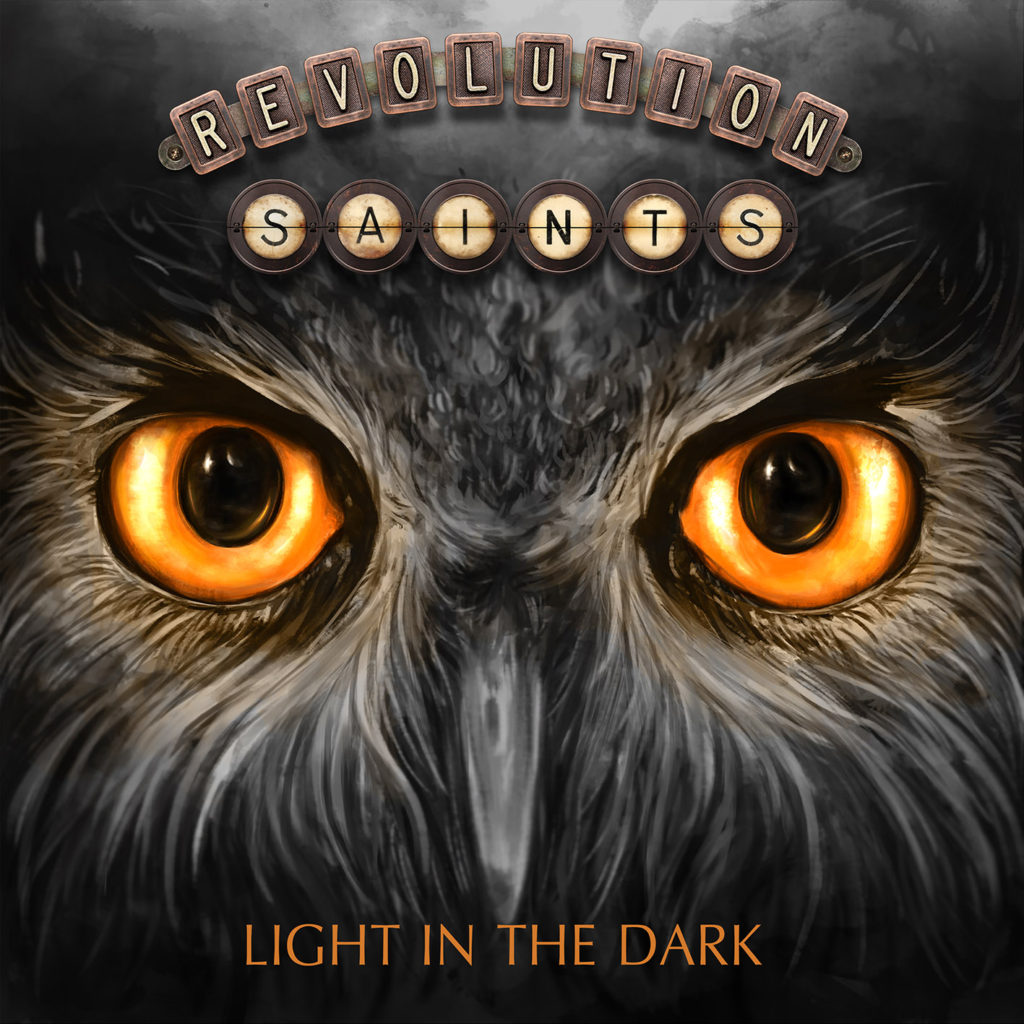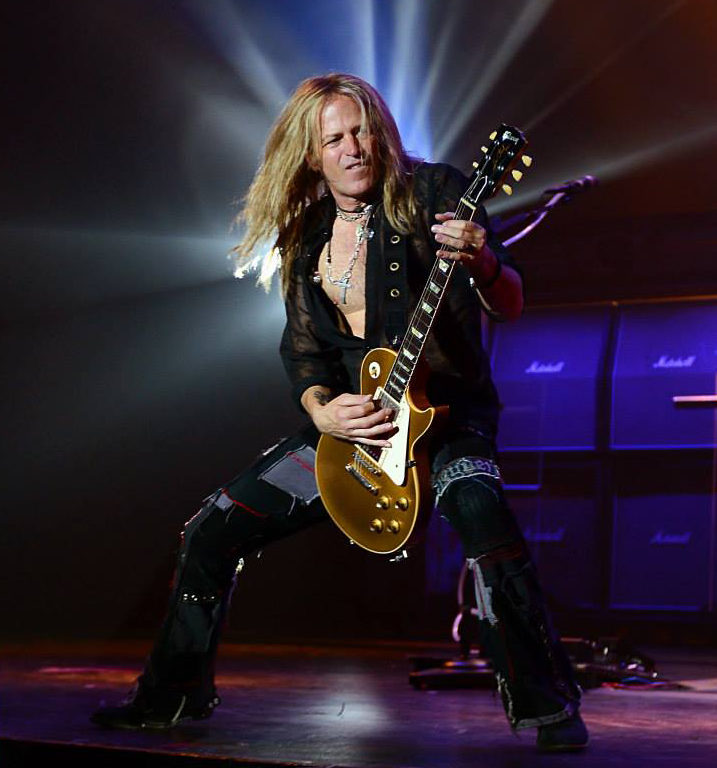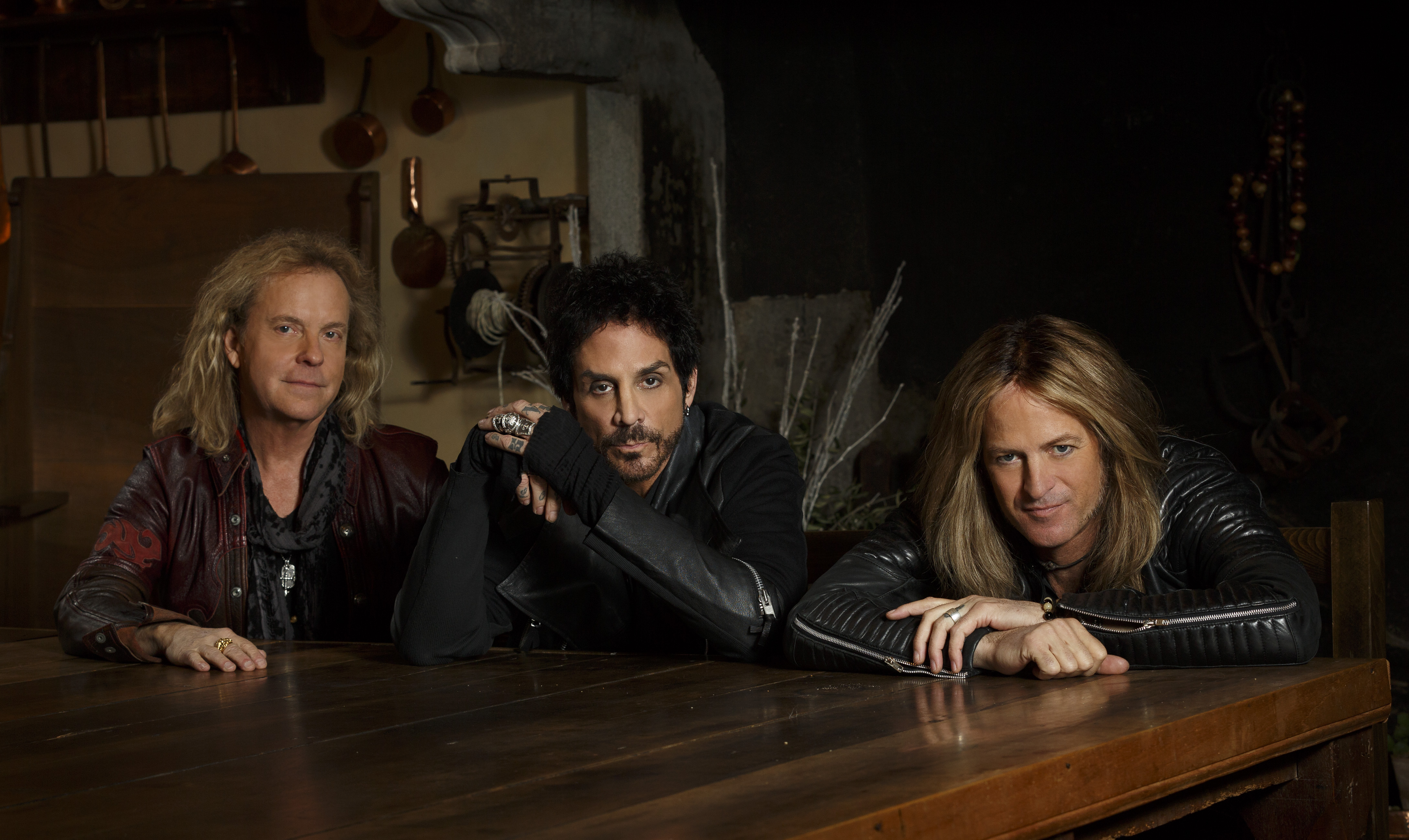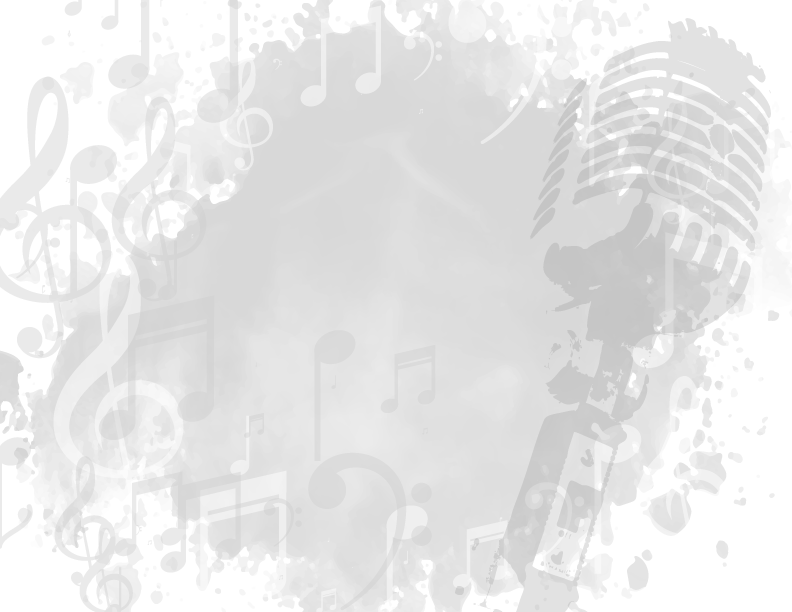A Light In the Dark: A Conversation With Doug Aldrich of Revolution Saints
For Revolution Saints guitarist Doug Aldrich, each and every day can be summed up in a simple axiom: Music is life, and life is music.
There’s family, too, of course, but his heart and soul are secured in the one place that’s always been true to him: the world of music.
Naturally, then, when tragedy strikes his epicenter, the impact is that much greater. Take Las Vegas for example, when, just a few days prior to this interview, the worst mass shooting in U.S. history had taken place at a Jason Aldean concert. Fifty-eight people lost their lives and more than 500 were injured. Like nearly all performing musicians, Aldrich’s initial response was that of pure shock. His world had been rocked, but this time, not in a good way.
“It’s horrible, man,” he said in a phone interview. “I can’t even believe that happened. Words can’t describe it. People want to go out and see live music, and we’ve just got to find a way to stop this from happening.”
The hot-point issues of mental illness, gun control and terrorism have reappeared once again, as they always do when these types of things happen, he said. Now, more than ever, a solution needs to be found, he said.
“I can’t live in fear,” Aldrich said. “There are a lot of issues that need to be resolved, but we can’t try to tackle them all at once. It won’t work. I’m going to keep doing what I do, which is play guitar. I don’t know all the ramifications and what is going to happen, but I do know we shouldn’t make this a political thing. Let’s just make some adjustments and find something that works for all of us.”
What Aldrich does have control of is his music, which he plans on making a lot more of. The latest project to receive the six-stringer’s touch is the new Revolution Saints album, “Light In the Dark,” where he teamed with bandmates Jack Blades (Night Ranger, Damn Yankees) on bass and vocals; and Deen Castronovo (Journey, Ozzy Osbourne, Bad English) on drums and vocals to deliver another solid offering of melodic hard rock to follow up the trio’s self-titled debut album in 2015.
Congratulations on another strong Revolution Saints record with “Light In the Dark.” What approach did you and Jack and Deen take for round two?
This was really good timing for this record. It’s got a good, positive message. The world is going through a difficult time right now all over the place for a number of reasons. It’s stressful. The message is that, no matter what is going on, there’s a light down the road — things can get better. The inspiration for that was Deen. He had been going through a rough time and pulled himself out of it. The first record was written as a solo record for Deen. Then after he decided that he wanted to have Jack and I be a part of it, the record company thought it sounded like a great band, so we all signed on to it. The record was already written for Deen, so we kind of changed the sound to fit the band.
Having one album under your collective belts that was pieced together, for lack of a better way of describing it, did you want to do something different creatively this time?
Definitely. This record, we wrote together. The majority of what you hear is what we wrote from scratch for this record. And we cut it together, which makes a big difference. We met up in Italy, recorded it together, and I think it made a big difference.
You wanted to be in the same room creatively, as opposed to shipping MP3s to each other from thousands of miles away.
Yeah, it’s so easy to do that, and the technology is so awesome to do that kind of things. But you do miss out on some aspects that are important in making a record.
After having recorded in studios, then having technology advance to the point where recording at home is an equally viable option, have you developed a preference as to the way your tracks are recorded?
I like it all. Like now, I’m doing some recording for a Christmas album. It’s pretty cool to be able to put a guitar solo on a track that’s being done somewhere else. If someone asked about making a record properly, though, I’d think being together is the best way. Record together, discuss parts, and be with the other guys. With my guitar parts for example, I’ll ask the guys, “What do you guys think? Do you like this guitar sound? I can do it this way, or I could do it this other way.” It really makes a difference when you’re playing together. There’s a kinetic energy thing that happens, and it helps the song.
There are bands on your Frontiers label that are studio-only projects that never see the light of day on stage. What about Revolution Saints? Are you guys going to be playing live at any point?
We would love to. We got some great offers last time but couldn’t make it work. We would love to if we can make it work financially. You’ve got to get paid to get the band up and rehearsing, pay the crew, etc. I think, if the offers come through, you’ll see us perform live sometime next year. We’ll see.
I’ve seen you perform live, and you have a distinct Randy Rhoads flair. Was Randy an influence for you as a young man learning to play guitar?
Not at all. Never even heard of him. (laughs) Of course he was! There was only one Randy, so you can’t copy him. But I loved him. I loved the fierce attack when he played, and the way he played with so much passion and energy. His riffs were so angular and classic, even Baroque-ish. Even his soloing was so cool. He was a different kind of person I could relate to. I’d look at Eddie Van Halen and think that he’s so cool. But I couldn’t play like that. Somehow I could relate to Randy easier. I love how he played.
What’s your guitar of choice?
I started out with a gold top Les Paul when I was a kid, and that’s kind of my go-to guitar.
How many guitars do you have at this point in your collection?
I think I have about 50.
What’s so endearing about the Les Paul, then?
The feel is great, and the shape is just so awesome. Actually, in the beginning, I thought the gold top was the ugliest color Gibson made. Now it’s the most beautiful to me. I had a Strat when I was a kid, too, because I love Jeff Beck. But my go-to is the Les Paul and probably always will be.
Speaking of other guitar players, you’ve been in bands that have had really great guitar players who have recorded some classic songs, whether it be Vivian Campbell’s work with Dio, or John Sykes with Whitesnake. What was your approach, when playing in those bands, in reinterpreting their work on stage? Are you a note-for-note guy, or get it in the “melodic ballpark,” so to speak?
I would be a note-for-note guy, but there’s only one of each of those guys, so I can’t. (laughs) And it’s funny you mention Sykes and Vivian, because we all three have some influences in common, namely Randy Rhoads and Gary Moore. Those guys were into the same stuff I was into, so it wasn’t such a far stretch to play their work. I play the spirit and the melodies that I can, but I obviously have to connect the dots with that and my own style so that comes through as well.
You’ve worked with some top-notch vocalists in your career as well. Talk about what you’ve learned from Ronnie James Dio, David Coverdale and the likes.
It’s amazing man. I’ve been blessed to work with some of the best. Deen, John Corabi (The Dead Daisies), Keith St. John (Burning Rain). David and Ronnie were a couple of the first who I really related to as a kid. The Rainbow stuff with Ronnie I really got into, and I liked Dio a lot as well. With David, the first thing I heard from him was Deep Purple, obviously, but then he went away for awhile. I didn’t know the early Whitesnake stuff that he did, but then I heard “Slide It In,” and I really loved it. My first recording band, I was working with a guy from England, and he had those early Whitesnake records, so that’s when I heard those and went back and explored them. Through the years, I’ve just been so fortunate to work with people like Kelly Hansen, the current Foreigner vocalist; and even doing studio sessions with Lady Gaga. I guess I’ve just been lucky with singers. (laughs)
It’s funny you mentioned Kelly because I was going to ask you about the one Hurricane album you played on, “Slave To the Thrill,” which I thought was great and was kind of your introduction to a lot of fans. Do you remember anything about that session?
Yeah. I was a little stubborn at the time. We were working with a producer at the time named Michael James Jackson, and he and I didn’t see eye-to-eye, so it was a difficult record to make. But looking back, I think it turned out really well, and I’m happy for the experience. I listened to it recently and was pleasantly surprised. And Kelly, man, he’s still the same. He’s unbelievable.
He’s more Lou Gramm than Lou Gramm anymore.
(laughs). He’s perfect, but he’s still found a way to put his flair on it, which is good. He found a way to keep that band alive so I’m happy for him and impressed with what he’s done. Kelly and I have been friends this whole time. When I first heard he had gotten the gig, I thought it was cool, but I didn’t realize how much Kelly would bring to that gig. He’s kept them going, as far as I can see.
Your discography and the amount of albums you’ve played on is nothing short of astounding. Do you know how many albums and songs you’ve contributed to?
I don’t, man, I really don’t. I just love playing. If someone asks me to play on a session, if I can, I do. Now, not all of it has been my favorite, but it’s always been a great experience to learn and work with other people. Sometimes you get the call to play the guitar on something, and then you hear it and don’t like the way the guitar was treated, but it’s always a good experience, and I always learn something.
Looking at your recorded works, and the volume of sessions you’ve been involved with, it’s almost as though your life is comprised of playing guitar and making music. Is that a fair assessment?
That’s really it. It’s what I know, and it’s all I’ve ever wanted to do. I’ve got kids now, so that’s a huge thing to be a good Dad, but other than that, it’s just about getting better. Whether it’s my playing technique or my songwriting or whatever, it’s important to keep pushing yourself and improving.
Any news from any of other projects, be it The Dead Daisies or otherwise?
I’m going to China for the first time to represent a pedal for a friend of mine’s company. When I get back, I’ll head to New York and start writing the next Dead Daisies record, which I’m really excited about. We’re going to take a little bit of a different approach on that. Meanwhile, Revolution Saints is coming out, and we’ll be trying to figure out how we can get out and promote that, maybe starting out in Japan and the doing a couple of weeks in Europe. And I’ve got a band Burning Rain with Keith St. John, who I’ve done three records with. And then there will be some new surprises coming up next year, too. Stay tuned.



Pingback: DOUG ALDRICH Remembers RANDY RHOADS On 38th Anniversary Of OZZY OSBOURNE Guitarist's Passing – 695TheRock.com
Pingback: DOUG ALDRICH Remembers RANDY RHOADS On 38th Anniversary Of OZZY OSBOURNE Guitarist’s Passing – Slyzza Dashboard
Pingback: DOUG ALDRICH Remembers RANDY RHOADS On 38th Anniversary Of OZZY OSBOURNE Guitarist's Passing - Empire ExtremeEmpire Extreme
Pingback: Doug Aldrich Remembers Randy Rhoads On 38th Anniversary Of Ozzy Osbourne Guitarist's Passing - Blabbermouth.net
Pingback: DOUG ALDRICH Remembers RANDY RHOADS On 38th Anniversary Of OZZY OSBOURNE Guitarist's Passing - Hard Rock Radio Live